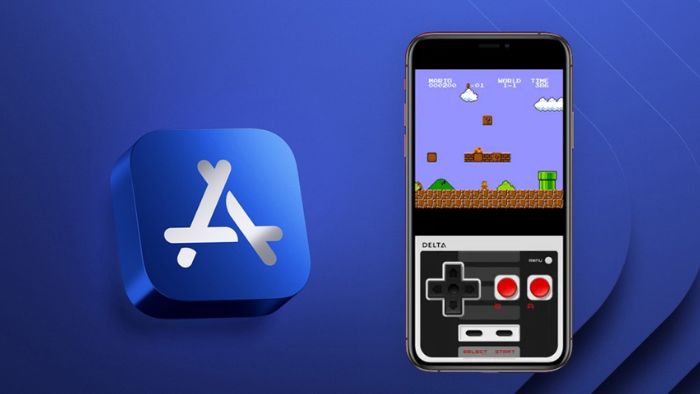The recent Apple App Store policy changes have sparked discussions within the tech community, especially in light of the approval of retro game emulators and the new responsibilities placed on developers. Alongside these updates, the bans on pirate games have raised eyebrows, prompting questions about the motivation driving these rule changes. Stay informed as we delve into the details of these Apple App Store policy changes and their implications.

Apple’s Approval of Retro Game Emulators
Apple’s recent policy changes have opened up opportunities for developers and retro gaming enthusiasts alike, with the inclusion of retro game emulators on the App Store. This shift enables users to access a wide array of games from past gaming consoles, bringing a wave of nostalgia to the modern tech landscape.
The decision marks a significant departure from Apple’s previous stance on emulators, signaling a more inclusive approach towards offering diverse gaming experiences on its platform. This move not only caters to the interests of retro gamers but also offers developers a chance to tap into a new market segment, expanding their audience base and revenue potential.
By allowing retro game emulators, Apple is providing developers with a platform to showcase their creativity and innovation in recreating classic gaming experiences for a new generation of players. This shift in policy not only enriches the App Store ecosystem but also encourages developers to explore new ways of engaging users through the revival of beloved retro games.

Changes in App Store Rules
-
Apple App Store policy changes have ushered in a significant shift, allowing the inclusion of emulator games that were previously banned. This change grants users the freedom to enjoy retro games directly from the App Store ecosystem, eliminating the hassle of resorting to jailbreaking or third-party sources.
-
The newfound acceptance of emulator games marks a strategic move by Apple to enhance user experience and cater to the nostalgia of retro gaming enthusiasts. Developers now have the opportunity to create and distribute emulator apps through the App Store, opening up a new avenue for creative and innovative gaming experiences within Apple’s ecosystem.

Ban on Pirate Games
-
Apple’s recent App Store policy changes have taken a strict stance against pirated games, emphasizing zero tolerance for unauthorized distribution due to copyright infringement concerns. This proactive move strengthens Apple’s commitment to maintaining a secure and ethical platform for developers and users alike.
-
Developers must align with Apple’s clear directive on banning pirate games to ensure compliance with the updated policies. By upholding these regulations, developers contribute to a safer and more reputable App Store environment, fostering trust among users and promoting a culture of respect for intellectual property rights.

Motivation for Rule Changes
-
Apple’s App Store policy changes, particularly regarding retro game emulators and developer responsibilities, reflect a broader shift towards promoting fair competition and transparency in the tech industry. The influence of the European Union’s Digital Markets Act highlights the global impact of these adjustments, signaling a commitment to combating anti-competitive behavior.
-
By implementing more stringent guidelines for retro game emulators and extending these rules to developers worldwide, Apple is taking proactive steps to ensure a level playing field within its App Store ecosystem. These changes not only uphold regulatory standards but also aim to foster innovation and protect consumer interests on a global scale.
